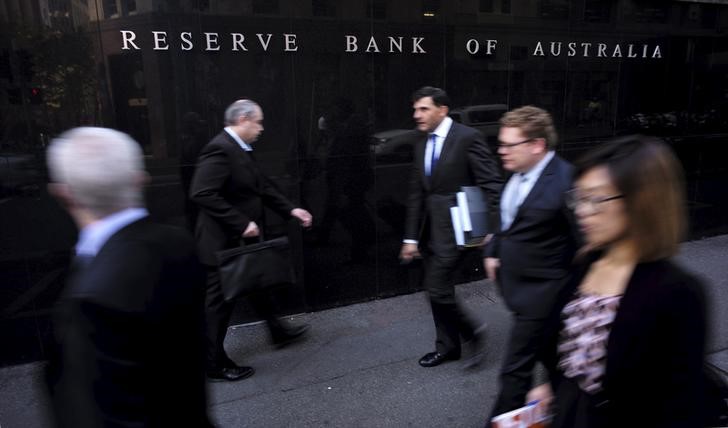* Close election points to minority govt, gridlock on reform
* Adds to pressure for more interest rate stimulus from RBA
* Fitch cautions AAA rating under threat over long run
* Inflation still under target, home building cools a touch
By Wayne Cole
SYDNEY, July 4 (Reuters) - Australia's central bank will have to carry the economy on its own after a cliff hanger election condemned the country to months of deadlock on budget reform, adding to an already compelling case for another cut in interest rates.
Vote counting will not even be finished when the Reserve Bank of Australia (RBA) holds its July policy meeting on Tuesday, making an easing unlikely this month. Rates are already at all-time lows of 1.75 percent after being cut in May.
Yet a move in August looks likely given inflation is too low for comfort, while consumers and businesses face the deadening hand of political uncertainty both at home and abroad.
It was little more than a week since Britain's shock decision to leave the European Union roiled markets and darkened the outlook for growth globally.
"The outcome bodes poorly for confidence, growth, and reform and we believe will weaken further the nation's AAA sovereign rating while keeping pressure on the RBA to do the heavy lifting," said Su-Lin Ong, a senior economist at RBC Capital Markets.
Ong sees rates reaching 1.25 percent before year-end, and she is hardly alone. A Reuters poll of 37 economists found all but 2 expected a steady outcome this week, but the majority predicted at least one more easing in August. AU/INT
Futures imply a 60 percent chance of a cut next month 0#YIB: and are fully priced for a move by November. Bond markets are already well ahead of that with yields out to five years AU5YT=RR paying less than the overnight cash rate.
Borrowing costs for the government are at record lows as investors hunt for any return in a world where negative bond yields are becoming the new normal.
Even speculation that political dysfunction could imperil Australia's triple A credit rating had scant impact.
"Fitch views Australia's overall credit profile as still consistent with a 'AAA' rating," the agency said.
"But political gridlock that leads to a sustained widening of the deficit would put downward pressure on the rating, particularly if the economic environment deteriorates."
INFLATION UNDER TARGET
The RBA has plenty of economic reasons to consider more stimulus, particularly with inflation so low.
A private survey from the Melbourne Institute out on Monday showed its version of the consumer price index jumped in June as petrol, holidays and fresh food all climbed.
Yet annual inflation of 1.5 percent was still well below the RBA's long run target band of 2 to 3 percent. A key measure of underlying inflation stood at just 1.2 percent.
Government data also showed a 5.2 percent pullback in approvals to build new homes in May, albeit from very high levels. Home building has been one of the bright spots in the economy and helped growth reach 3.1 percent in the first quarter of the year.
There was better news on employment with ANZ's measure of job advertisements rising 0.5 percent in June on top of a 2.2 percent jump the month before.
"The strength in labour demand over the past two months is consistent with robust business conditions and solid momentum in the domestic economy," said Felicity Emmett, head of Australian Economics at ANZ.
<^^^^^^^^^^^^^^^^^^^^^^^^^^^^^^^^^^^^^^^^^^^^^^^^^^^^^^^^^^^ GRAPHIC: Australia election
http://tmsnrt.rs/28JtrTT
^^^^^^^^^^^^^^^^^^^^^^^^^^^^^^^^^^^^^^^^^^^^^^^^^^^^^^^^^^^>
